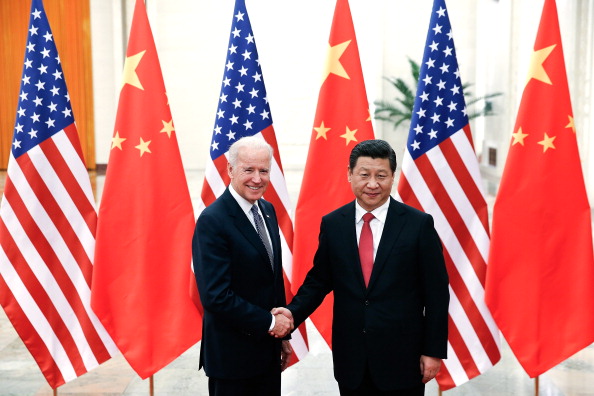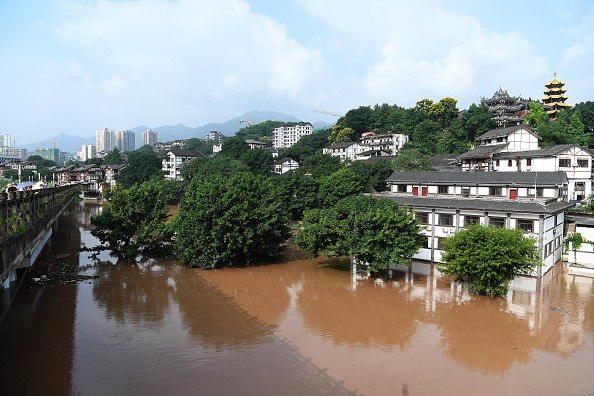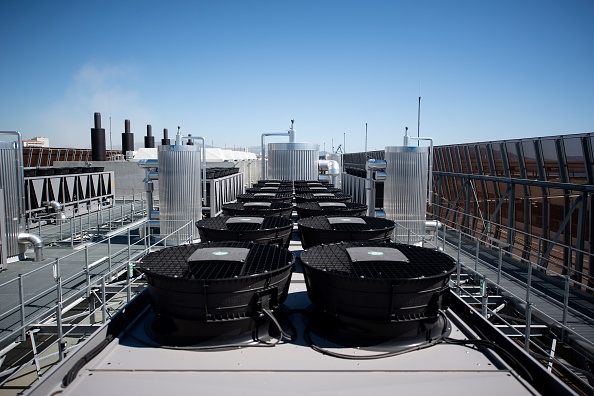
 State of Play
State of PlayIt was another rocky week in the U.S.-China relationship. Today, the U.S. announced new sanctions on Iran-related entities, specifically targeting Hong Kong-based Chinese institutions, including China 49 Group and PCA Xiang Gang Ltd. The move follows a pattern of bilateral sanctions over the last few years, and comes on the tail of recent high-level engagement between Washington and Beijing.
President Joe Biden and President Xi Jinping spoke last week for the second time since the start of Biden's presidency. According to a statement from the White House, the two leaders "discussed areas where our interests converge, and areas where our interests, values, and perspectives diverge." A report from Chinese state media went into more extensive detail about the call, noting that the two sides discussed the history of bilateral relations and the significance that holds for the present and future, along with where the two countries share interests. Washington and Beijing continue to stand firmly on their positions, with the Biden administration saying they're willing to cooperate on issues like climate change, and Chinese officials emphasizing that they can't guarantee cooperation if the U.S. continues to "harm China's interests." Both countries agreed, however, that the fate of the world will largely be influenced by U.S.-China relations.
While both leaders are expected to participate in the Group of 20 meeting in Italy next month, it's yet to be determined if a bilateral summit that normally occurs between U.S. and Chinese officials will go forward. Rumors are swirling that President Xi declined Biden's offer to host an in-person summit between U.S. and Chinese leaders, however Biden has since denied the rumor. President Xi has not left China since the start of the pandemic, and Chinese officials have hinted that he doesn't plan to do so anytime soon.
Read more in "Biden, China, and a Changing World," by Clifford Kiracofe.
 Storms in Supply
Storms in SupplyOver the past week, global supply chains reliant on both China and the U.S. have been increasingly battered by a series of shocks— from weather, to the pandemic, to regulatory and labor issues. This week, Super Typhoon Chanthu, a category 5 hurricane, forced some of China's busiest global ports and airports to temporarily shut down. The Ningbo-Zhoushan Port and Shanghai International Port both halted operations as a precaution. On the other side of the globe, terminals in Houston, Texas, had to curb cargo handling and limit vessel traffic after Tropical Storm Nicholas and Hurricane Ida hit the U.S. over the last two weeks.
Even though the delays in both countries were temporary, stalls in two major trade gateways are continuing to impact an already bruised global shipping industry. The delays are also hurting China's critical export infrastructure, which is burdened with record demand, pandemic shut downs, and staggering shipping costs. COVID outbreaks have recently halted Ningbo Port activity, as well as other airport shipments.
While the U.S. supply chain is also being hampered by labor shortages due to the pandemic and weather shocks, Chinese leaders are working to reform labor, and have pushed for increased unionization, gig work expansions, and new algorithm rules for big tech companies in China. On Friday, Chinese government officials informed ride share and delivery companies that they must improve wages and break policies. These employment changes, combined with algorithm rule adjustments, have forced one of China's delivery giants, Meituan, to change how it delivers to customers and the time it takes for packages to arrive.
 Pacific Problems
Pacific ProblemsChina has applied to join the Comprehensive and Progressive Agreement for Trans-Pacific Partnership, a major free trade agreement signed by 11 Pacific countries in 2018. Japan, the current chair of the CPTPP, has said they will decide if China meets the "extremely high standards" required to join. Previously known as the TPP, the economic partnership was central to former U.S. President Barack Obama's strategic pivot to Asia, but his successor, Donald Trump, withdrew the United States from the pact in 2017.
China on Thursday denounced a new Indo-Pacific security alliance between the United States, Britain and Australia, saying such partnerships should not target third countries and warning of an intensified arms race in the region. The new deal mirrors the previous exchange of submarine weaponry between the U.S. and the U.K. during the Cold War, which was meant to counter potential Soviet aggression. The United States and its allies are looking for ways to push back against China's growing power and influence, particularly its military buildup, pressure on Taiwan and deployments in the contested South China Sea.
President Biden remarked that the deal was meant to ensure "peace and stability in the Indo-Pacific over the long term," whereas China's Foreign Ministry spokesman Zhao Linjian condemned the move as an inflammatory arms race maneuver, comparing it to the Cold War and demeaning Australia as an "adversary." Beijing also emphasized that the initiative is a threat to regional peace.
Read more in "China's CPTPP Challenge," by Zhang Monan.
Prepared by China-US Focus editorial teams in Hong Kong and New York, this weekly newsletter offers you snap shots of latest trends and developments emerging from China every week, while adding a dose of historical perspective.
- 2021-09-10 The Last Word
- 2021-09-03 Heightened Frustrations
- 2021-08-27 China’s Backyard
- 2021-08-20 Graveyard of Empires
- 2021-08-13 A New Crossroads
- 2021-08-06 Lowering Barriers
- 2021-07-30 A Diplomatic Stalemate
- 2021-07-23 A Climate for Change
- 2021-07-16 The Trade Game
- 2021-07-09 Existential Threats
- 2021-07-01 Centenary Celebrations
- 2021-06-25 Critical Crossroads
- 2021-06-18 Part of the Club
- 2021-06-11 Retaliatory Legislation
- 2021-06-04 "Defanging" Diplomacy
- 2021-05-28 The End of an Era?
- 2021-05-21 One Step Forward, One Step Back
- 2021-05-14 Drifting Trade Ties
- 2021-05-07 Time to Talk
- 2021-04-30 Academic Pandemic
